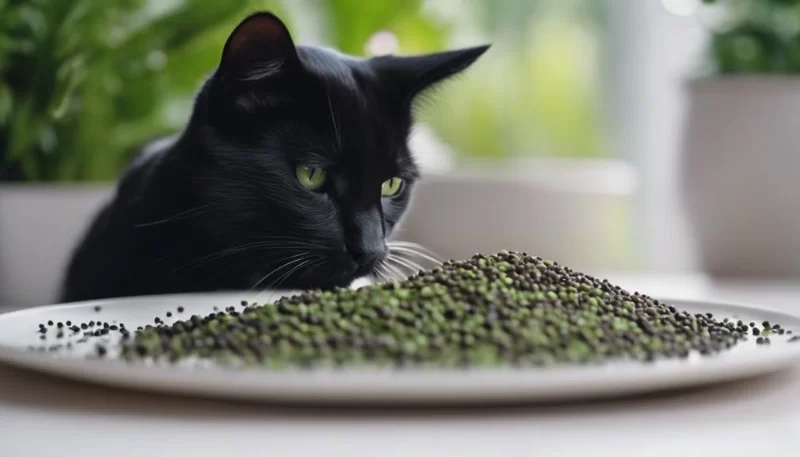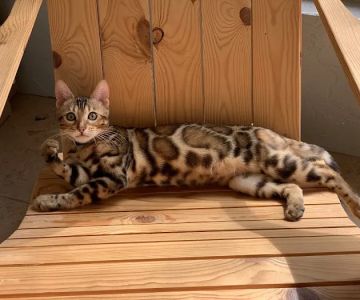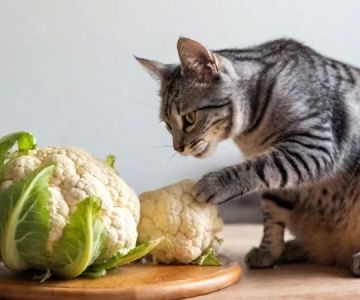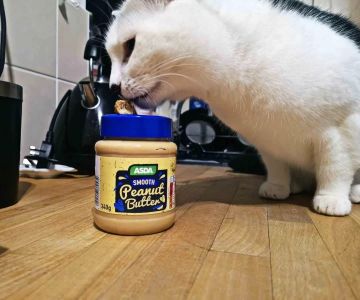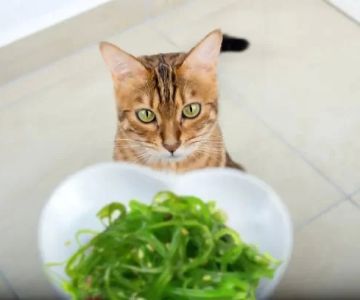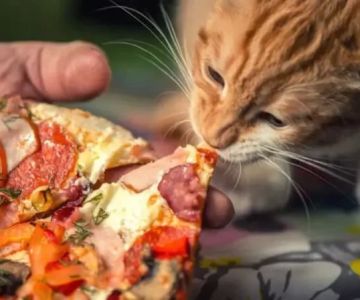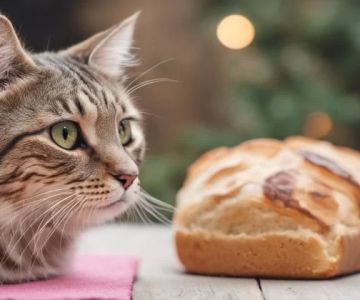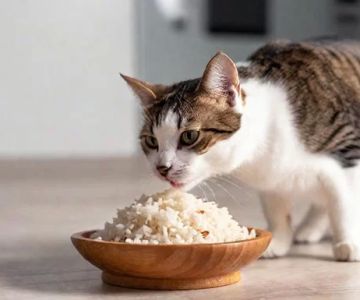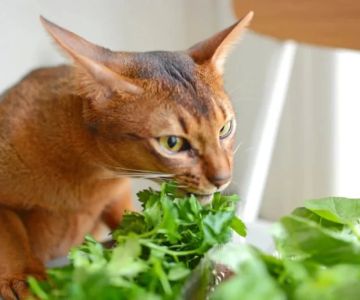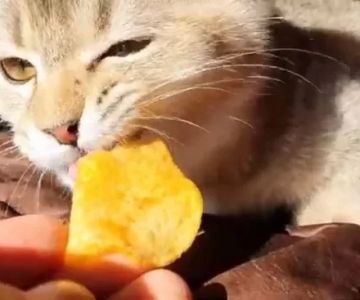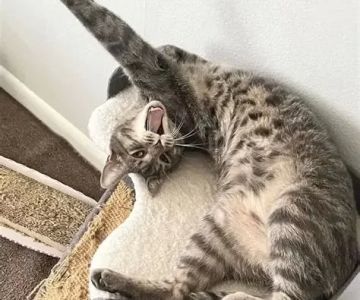Can Cats Eat Chia Pudding? Understanding the Risks and Benefits
If you’re a cat owner who enjoys a healthy, plant-based diet, you may have wondered whether chia pudding, a popular snack made from chia seeds, is safe to share with your feline companion. After all, chia seeds are often touted as a superfood for humans, with a range of health benefits. But when it comes to feeding chia seeds or chia pudding to cats, there are several factors to consider. Let’s explore the question: Can cats eat chia pudding?
1. What Is Chia Pudding and How Is It Made?
Chia pudding is typically made by mixing chia seeds with a liquid (often almond milk, coconut milk, or dairy) and allowing it to sit in the refrigerator for several hours or overnight to absorb the liquid and form a gel-like consistency. The resulting dish is rich in fiber, omega-3 fatty acids, and various nutrients. While chia pudding is a healthy and nutritious treat for humans, it’s important to understand how chia seeds affect your cat before considering sharing it.
2. Are Chia Seeds Safe for Cats?
Chia seeds, in small amounts, are generally safe for cats. These tiny seeds are rich in fiber and omega-3 fatty acids, which can contribute to overall health. They also provide antioxidants, which help protect against cellular damage and support a healthy immune system. However, it’s crucial to keep in mind that cats are obligate carnivores, meaning their digestive system is specifically adapted to process animal-based proteins. While chia seeds aren’t toxic to cats, they’re not a natural part of their diet, and feeding them too much can lead to gastrointestinal issues.
3. The Risks of Feeding Chia Pudding to Cats
While chia seeds themselves aren’t harmful in moderation, chia pudding poses additional concerns for cats:
- Added Ingredients: Most chia pudding recipes contain added ingredients like sweeteners, fruits, or flavorings that are not suitable for cats. Ingredients such as chocolate, xylitol, or certain fruits (like grapes) can be toxic to felines. Always ensure any recipe you use is free of these harmful substances.
- High Fiber Content: Chia seeds are high in fiber, which, when consumed in large amounts by cats, can lead to stomach upset, diarrhea, or constipation. Cats’ digestive systems are not built to process large amounts of fiber, so it's important to use chia seeds sparingly.
- Possible Blockage: When chia seeds absorb liquid and expand, they can become gel-like, which may cause digestive blockages if consumed in excessive amounts. Cats are at risk of experiencing difficulty digesting the swollen seeds, especially if they are consumed too quickly.
4. Health Benefits of Chia Seeds for Cats
Despite the risks, chia seeds do offer some health benefits when used properly. For instance, chia seeds are rich in omega-3 fatty acids, which are essential for maintaining healthy skin, fur, and joints in cats. Omega-3s can also help reduce inflammation and support a healthy heart. In small doses, chia seeds can be a good source of plant-based nutrients to supplement a cat's diet.
Additionally, the fiber content in chia seeds can aid in digestion and promote regular bowel movements. It may help prevent constipation or manage hairballs in cats, but again, moderation is key. Too much fiber can have the opposite effect, leading to digestive issues.
5. How to Safely Feed Chia Seeds to Your Cat
If you're interested in offering chia seeds to your cat, it’s essential to do so with caution. Here are some tips for incorporating chia seeds into your cat’s diet safely:
- Use Small Quantities: Start by offering a tiny amount of chia seeds to your cat to see how they react. You can mix them with their regular food or sprinkle a few on top of a wet meal.
- Opt for Plain Chia Seeds: Avoid chia pudding or other recipes that contain sweeteners or fruits. Only use plain chia seeds, as other ingredients may pose health risks.
- Hydrate Properly: Always make sure to soak the chia seeds in water before serving them to your cat. The seeds will absorb water and become easier to digest. Never feed dry chia seeds, as they can expand in your cat’s stomach and cause discomfort or blockages.
- Monitor for Digestive Issues: Keep an eye on your cat after introducing chia seeds to their diet. If you notice any changes in their bowel movements, appetite, or behavior, discontinue the chia seeds and consult your veterinarian.
6. Alternatives to Chia Pudding for Cats
If you’re looking for a healthy treat for your cat, there are several other options to consider that are better suited to their dietary needs:
- Meat-Based Treats: Cats thrive on animal protein, so offering them small pieces of cooked chicken, turkey, or fish is a much better alternative than chia pudding. These foods align with their natural diet and provide essential nutrients.
- Cat-Specific Supplements: If you want to supplement your cat’s diet with additional nutrients like omega-3 fatty acids, consider purchasing cat-specific supplements that are designed to meet their needs. These products are formulated with the correct dosages for felines.
- Cat Grass: Many cats enjoy nibbling on cat grass, which provides fiber and promotes healthy digestion. It’s a great alternative to chia seeds and much safer for cats to consume.
7. Consulting with Your Veterinarian
Before introducing any new food or supplement to your cat’s diet, it’s always a good idea to consult with your veterinarian. A professional can provide guidance on the appropriate portion sizes, as well as any potential risks specific to your cat’s health and dietary needs. They can also help you determine if chia seeds or other plant-based foods are suitable for your cat.
If you have questions or concerns about your cat’s nutrition or diet, visit Hidden Brook Veterinary for expert advice and recommendations tailored to your pet’s health needs.

